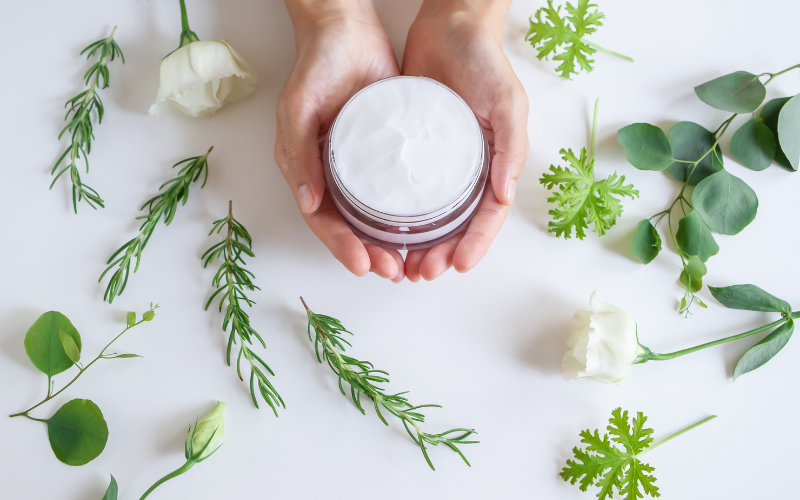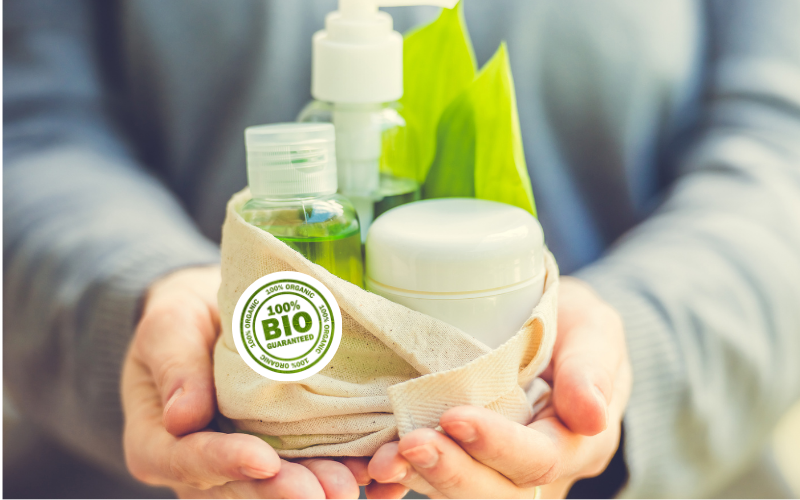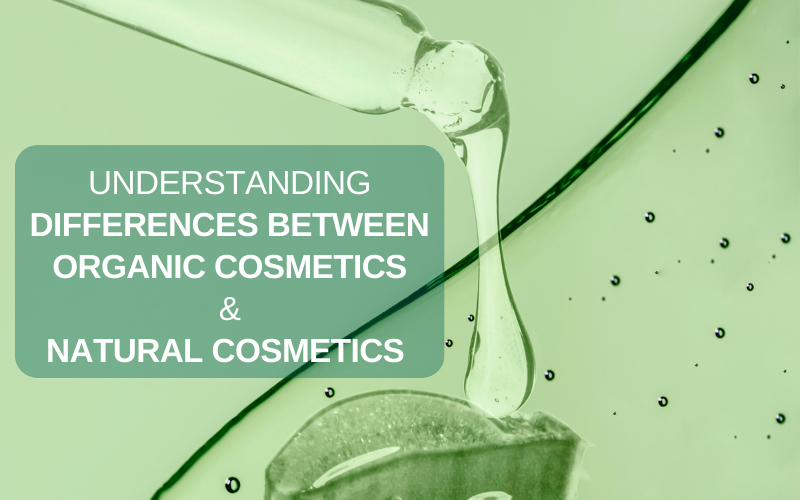Differentiating Organic and Natural Beauty Products?
Organic and natural cosmetics primarily use ingredients derived from natural raw materials. However, the terms “natural” and “organic” have distinct meanings. Let’s see what sets them apart.

Natural Cosmetics: A definition
Natural cosmetics refer to beauty care (solid shampoos, face creams, body care, hair mask, etc.) formulated with a strict minimum of synthetic or artificial components.
Formulation of Natural Beauty Products
In natural beauty, formulations are made with natural or naturally sourced ingredients, comprising a minimum of 95%, according to ISO 16128 standard. Ingredients are predominantly of plant origin and can also be certified organic. However, if they are in too low a proportion in the formulation, the “organic” certification will not be permitted on the finished product.
Formulations may include neutral bases such as hydrolats (floral waters), shea butter, and vegetable oils.
Cosmetic manufacturers of sustainable beauty products generally adopt environmentally friendly formulation practices, including the upcycling of cosmetic products. Although it is not a mandatory requirement, natural skin care are all subject to the same regulations as any other skincare, including Regulation (EC) No 1223/2009 and Regulation (EU) No 655/2013 regarding claims.
In France, the ARPP‘s cosmetic recommendations guide provides good additional insights into ethical rules applicable to advertising communication for cosmetic claims. Therefore, it is highly recommended to check claims shown on finished products in terms of their percentage of the natural share.

Organic Cosmetics: A definition
Organic cosmetics refer to beauty care containing ingredients grown according to certified organic practices by independent organizations known as certifying bodies. They allow finished products to be labeled as “organic” if they meet the criteria of the standard, such as the absence of prohibited ingredients or the proportion of certified organic components.
These organizations establish their own organic production standards to certify relevant products. To achieve this compliance, some ingredients may rely on regulations governing organic farming. These certifications or labels provide consumers with a higher guarantee of product compliance.
Formulation of Organic Beauty Products
According to the Cosmos Organic standard, organic cosmetics (serum, deodorants, etc) are formulated with at least 95% plant-based ingredients sourced from organic farming. On the other hand, a leave-on formula used in skincare like face creams and body balms contains a minimum of 20% organic components in total. In both cases, the latter are cultivated without the use of pesticides, chemical fertilizers, or genetically modified organisms (GMOs). Organic cosmetics undergo rigorous controls throughout their production chain, from ingredient cultivation to the manufacturing of the finished product.
Organic beauty prioritizes sustainable and environmental-friendly manufacturing processes. That includes farming practices, the use of renewable energy, the compliance with ecological standards during manufacturing based on green chemistry principles, and the use of sustainable beauty packaging.
The presence of synthetic components, such as preservatives in organic skincare is possible but strictly regulated.
How to Recognize an Organic Cosmetic From a Natural One?
To determine whether a skin care is genuinely natural, of natural origin, and/or certified organic, it is important to look for certification logos and/or mentions related to the ingredients source on the end-products. This way, it ensures quality and compliance with the criteria mentioned earlier.
Certification labels for organic beauty (France and international):
- Cosmébio
- Cosmos Organic
- USDA Organic
Certification labels for natural beauty:
- Cosmos Natural
- Cosmébio
Natural Beauty Trends
Did you know that natural cosmetics stem from a trend called Green Beauty?
Originating from the United States, this beauty trend is rapidly gaining ground in France, encouraging cosmetics brands to adopt a new, more ecological and sustainable approach to natural skincare.
Along with the Green Beauty trend, another trend has arisen, that of Clean Beauty. It advocates transparency in cosmetic formulas with the fewest possible synthetic ingredients, such as preservatives, controversial actives, etc.). Clean Beauty promotes safety for both people’s skin and health.
French private label ALPOL Cosmetique is a key partner in the beauty industry, with a well established 70 year-work experience. They offer turnkey formulas, including several ranges of organic and natural skin care. Contact ALPOL Cosmetique’s teams by clicking here.





